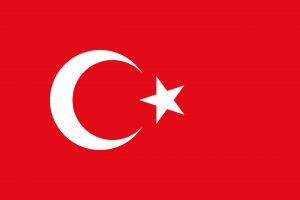Language/Turkish/Culture/Family-and-Relationships
 Հայերէն
Հայերէն Български език
Български език 官话
官话 官話
官話 Hrvatski jezik
Hrvatski jezik Český jazyk
Český jazyk Nederlands
Nederlands English
English Suomen kieli
Suomen kieli Français
Français Deutsch
Deutsch עברית
עברית हिन्दी
हिन्दी Magyar
Magyar Bahasa Indonesia
Bahasa Indonesia فارسی
فارسی Italiano
Italiano 日本語
日本語 Қазақ тілі
Қазақ тілі 한국어
한국어 Lietuvių kalba
Lietuvių kalba Νέα Ελληνικά
Νέα Ελληνικά Şimali Azərbaycanlılar
Şimali Azərbaycanlılar Język polski
Język polski Português
Português Limba Română
Limba Română Русский язык
Русский язык Српски
Српски Español
Español العربية القياسية
العربية القياسية Svenska
Svenska Wikang Tagalog
Wikang Tagalog தமிழ்
தமிழ் ภาษาไทย
ภาษาไทย Українська мова
Українська мова Urdu
Urdu Tiếng Việt
Tiếng ViệtAs a Turkish language teacher with over 20 years of experience, I'm happy to share with you some insights into Turkish culture, focusing on family and relationships. In this lesson, you'll learn about the importance of family in Turkish culture, typical family customs, and how to address people appropriately.
The Importance of Family
Family is the backbone of Turkish society. Strong family ties are highly respected and play a key role in shaping an individual's identity. For example, even as young adults, Turks are expected to maintain close relationships with their immediate and extended families, whether they live nearby or far away.
Within this tight-knit family unit, there is a strong emphasis on respect for one's elders, particularly parents and grandparents. Children are raised to believe that their parents' opinions and advice should be valued and followed, which in turn contributes to a sense of unity and harmony within the family.
Typical Family Customs
While every family is unique, there are some customs that are common across Turkish society. One such custom is that of the "gunahtan kurtarma" ceremony, which translates to "saving from sin." This custom is typically performed 40 days after the birth of a child, and involves a ceremony in which the baby is passed through a fire three times as a symbol of purification.
Another important custom is that of "kina gecesi," or "henna night." This is a pre-wedding celebration during which the bride-to-be and her female family members and friends gather together to have their hands and feet adorned with henna. This tradition is thought to bring good luck and fertility to the bride.
Addressing People Appropriately
Respectful forms of addressing are important in Turkish society, particularly with respect to age and social status. For example, it is common practice to add the suffix -ci to someone's profession or trade to denote respect (e.g. hoca for teacher becomes hocaci).
When addressing elder family members, the terms "abla" and "abi" are often used, which translate to "older sister" and "older brother," respectively. Similarly, "teyze" and "amca" are used for aunts and uncles, while "babaanne" and "dede" are used for grandparents.
Conclusion
Understanding Turkish family and relationship customs is an important aspect of integrating into Turkish society. I hope this lesson has provided you with useful insights into the customs and traditions of Turkish families. Keep practicing your Turkish language skills and don't hesitate to ask for help if you need it!
Sources

